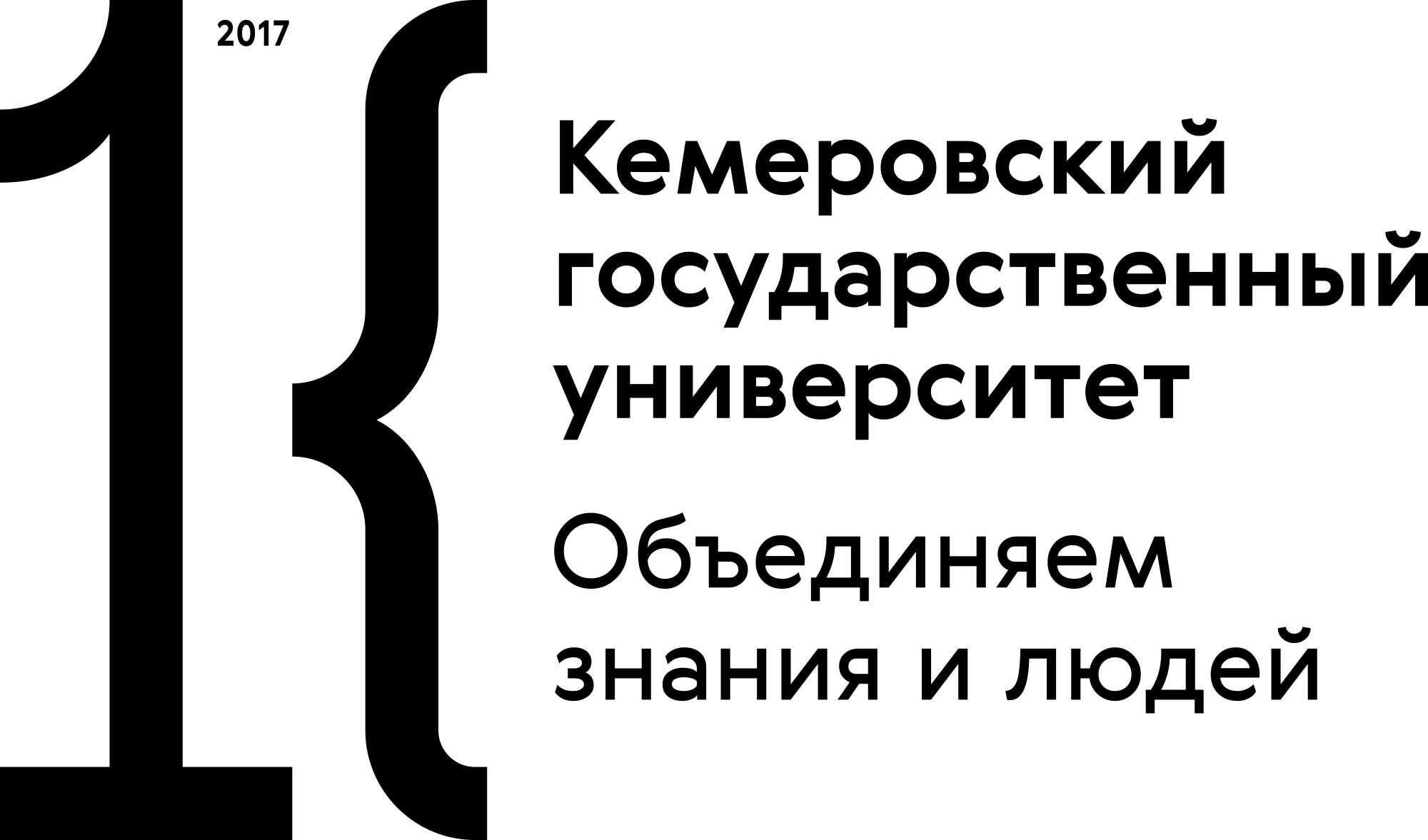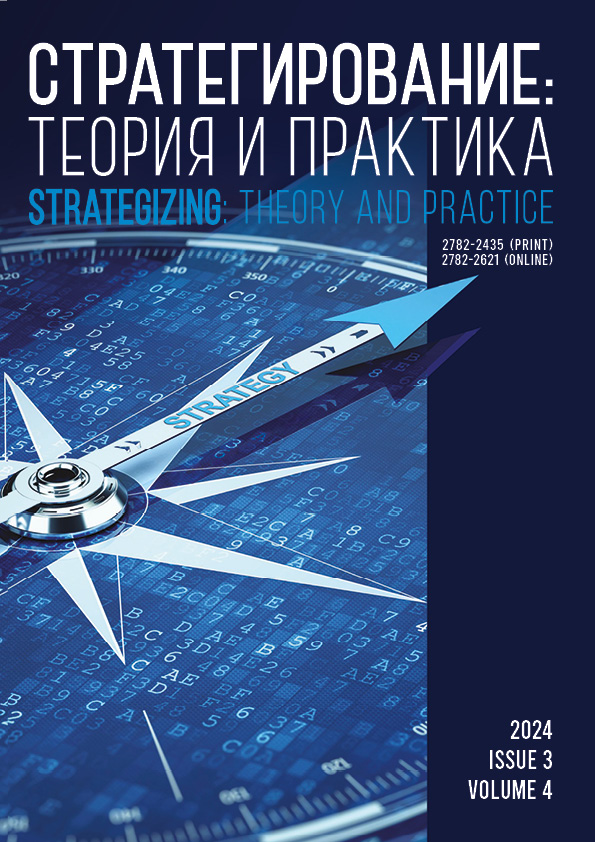Moscow, Moscow, Russian Federation
The article introduces a conceptual model for strategizing the socio-economic development of resource regions. The research relied on the theory of strategy and methodology of strategizing developed by Professor Vladimir L. Kvint. The model, which consisted of several stages, covered trend analysis, internal environment analysis, mission formation, strategic priorities, and their assessment by mathematical, statistical, and cognitive methods. It is shown that the developed model can be used to develop strategies for resourceoriented regions, and also expanded for use in regional strategizing in general.
methodology of strategizing, resource regions, conceptual model, trend analysis, strategic priorities
1. Aganbegyan AG. On overcoming stagnation, recession and achieving 5 % growth. Economic Revival of Russia. 2019;2(60):17–23. (In Russ.)
2. Belan AK, Shmat VV. Analysis of resource and non-resource factors’ influence on economic growth of Tomsk region using cognitive approach. World of Economics and Management. 2015;15(1):78–93. (In Russ.)
3. Vlasyuk LI. Economic and Mathematical Support for Regional and Sectoral Strategizing. Strategizing: Theory and Practice. 2024;4(1):96–109. (In Russ.) https://doi.org/10.21603/2782-2435-2024-4-1-96-109
4. Vlasyuk LI. Strategic priority for greening the Kuzbass economy: land rehabilitation fund. Administrative consulting. 2021;2:69–78. (In Russ.) https://doi.org/10.22394/1726-1139-2021-2-69-78
5. Gerelishin RI. Analysis of the influence of strategic trends: methodological aspect and application at the regional level. Administrative Consulting. 2024;2:198–214. (In Russ.) https://doi.org/10.22394/1726-1139-2024-2-198-214
6. Gerelishin RI.Determining the group of resource-oriented regions in the methodology of strategizing. Russian Journal of Industrial Economics. 2024;17(2):194–205. (In Russ.) https://doi.org/10.17073/ 2072-1633-2024-2-1286
7. Zhuravlev DM, Chaadaev VK. Strategic instruments for the growth of the industrial sector of the economy in the conditions of the economy in the conditions of the sixth big Kondratiev cycle. Russian Journal of Industrial Economics. 2023;16(3):253–262. (In Russ.) https://doi.org/10.17073/2072-1633- 2023-3-253-262
8. Kvint VL. The wisdom of the strategist. Moscow: YanikO; 2024. 144 p. (In Russ.)
9. Kvint VL. The Concept of Strategizing. St. Petersburg: NWIM RANEPA, 2022. 164 p. (In Russ.)
10. Kvint VL. The global emerging market: strategic management and economics. Moscow: Biznes atlas; 2012. 627 p. (In Russ.)
11. Kvint VL. Theoretical basis and methodology of strategizing of the private and public sectors of the Kuzbass region as a medial subsystem of the national economy. Russian Journal of Industrial Economics. 2020;13(3):290–299. (In Russ.) https://doi.org/10.17073/2072-1633-2020-3-290-299
12. Kvint VL, Novikova IV, Alimuradov MK. Alignment of global and national interest with regional strategic priorities. Economics and Management. 2021;27(11):900–909. (In Russ.) https://doi.org/10.35854/1998-1627-2021-11-900-909
13. Makarov VL, Bakhtizin AR, Sushko ED. An agent-oriented socio-ecological-economic model of a region. National Interests: Priorities and Security. 2015;11(3):2–11. (In Russ.)
14. Novikova IV. Strategy for employment of the population as a mechanism of minimizing precarisation. Living standards of the population of Russian regions. 2018;2(208):71–77. (In Russ.) http://doi.org/10.24411/1999-9836-2018-10016
15. Novikova IV. Strategizing of the human resources development: main elements and stages. Strategizing: Theory and Practice. 2021;1(1):57–65. (In Russ.) https://doi.org/10.21603/2782-2435-2021-1-1-57-65
16. Okrepilov VV, Babkin AV, Zlobina NV, Kuzmina SN, Salimova TA. Ensuring sustainable development of economic agents by methods of quality management in the era of digitalization. Economics Of Contemporary Russia. 2021;(2):81–100. (In Russ.) https://doi.org/10.33293/1609-1442-2021-2(93)-81-100
17. Papenov KV, Nikonorov SM. Theoretical and practical problems of Arctic development. Arctic 2035: Current Issues, Problems, Solutions. 2020;3(3):64–75. https://doi.org/10.51823/74670_2020_3_64
18. Kryukov VA, Shmat VV, Nefedkin VI, Sevastyanova AE, Tokarev AN, Sadovskaya VO, et al. Resursnyye regiony Rossii v «novoy realnosti» [Resource regions of Russia in the “new reality”]. Novosibirsk: IEOPP SB RAS; 2017. 307 p. (In Russ.)
19. Sasaev NI. The Primary Assessment of the Economic Efficiency of Strategic Directions of Development of Gas Industry in Russia. Economics and Mathematical Methods. 2020;56(2):52–65. (In Russ.) https://doi.org/10.31857/S042473880009219-9
20. Myaskov AV, Petrov IV, Zaitsev VS, Shmelev VS. System features of environmental monitoring in the formation of territorial projects of the northern sea route. Monitoring. Science and Technology. 2018;S5:7–14. (In Russ.) http://doi.org/10.25714/MNT.2018.38.001
21. Chkhotua IZ, Khvorostyanaya AS, Sadovnichaya AV, Pyatovsky AA, Yumatov KV, Shevchuk AV, et al. Strategizing of the tourism and trade show industries in Kuzbass region. Kemerovo: Kemerovo State University; 2021. 371 p. (In Russ.) https://doi. org/10.21603/978-5-8353-2718-8
22. Kvint VL, Zadorozhnaya GV, Dudovtseva YuV, Shevchuk AV, Alekseev GF, Alimuradov MK, et al. Strategizing of Kuzbass region ecological development. Kemerovo: Kemerovo State University; 2021. 416 p. (In Russ.) https://doi.org/10.21603/978-5-8353-2797-3
23. Fadeev AM. Energy projects in the Arctic: strategic priorities of technological independence. Strategizing: Theory and Practice. 2022;2(1):88–105. (In Russ.) https://doi.org/10.21603/2782-2435-2022-2-1-88-105
24. Chkhotua IZ, Vlasyuk LI, Zadorozhnaya GV. Strategic analysis of industrial tourism development in the regions of Russia: opportunities and threats. Economic Revival of Russia. 2021;4(70):156–174. (In Russ.) https://doi.org/10.37930/1990-9780-2021-4-70-156-174
25. Shakleina MV, Shaklein KI. Building a conceptual model of sector development and assessment of the system-building effect. Economic and Social Changes: Facts, Trends, Forecast. 2018;11(3):145–161. (In Russ.) https://doi.org/10.15838/ esc.2018.3.57.10
26. Bousquet F, Trébuil G, Hardy B. Companion modeling and multi-agent systems for integrated natural resource management in Asia Los Baños (Philippines). International Rice Research Institute; 2005. 360 p.






